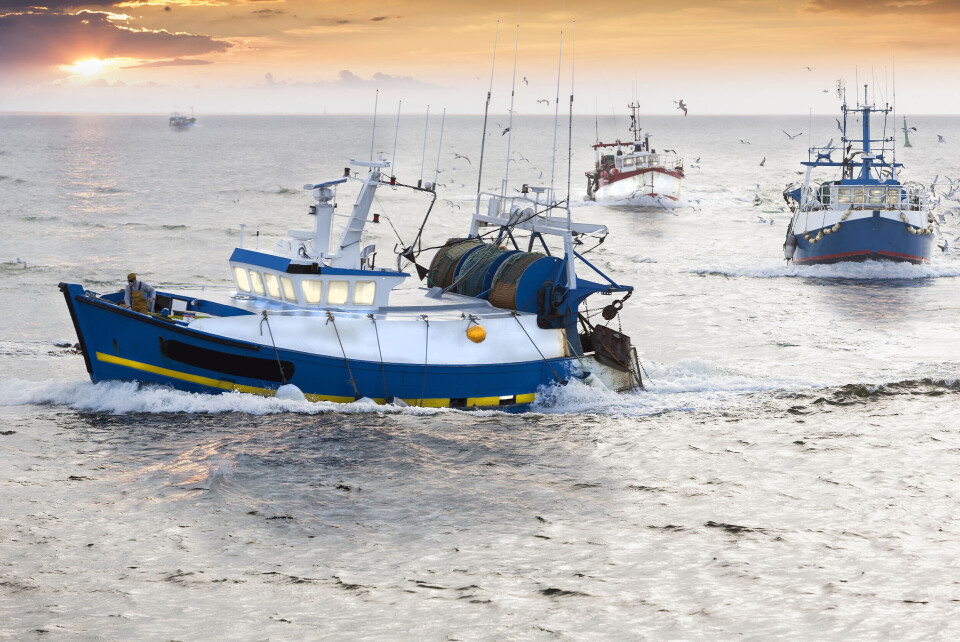-
QR code to replace paper instructions for 100 medicines in France in new trial
Paracetamol and cholesterol medication to be included in scheme that launches this autumn
-
Online ‘anti-waste’ supermarket offers deals on everyday items in France - we test it
Discounts of 10% to 50% available on brand products
-
The curious case of Good Friday: Why only some parts of France have the day off
Three French departments benefit from two extra public holidays
French fishermen begin two-day strike to highlight ‘plague of crises’
EU regulations and post-Brexit turmoil have left the sector with a ‘dark horizon’, say industry groups

Many French fishermen have begun a two-day strike to highlight a “plague of crises” hitting their sector, including EU regulation and post-Brexit turmoil.
They are being called to walk out on Thursday (March 30) and Friday (March 31) to call for more government support.
Industry group le Comité national des pêches (CNP) says the journées mortes (dead days) in French ports would mean no fishing boats going out, no fish sales, and no processing of fish food items.
The CNP says each local committee can decide the best day or days to strike.
Some ports have already begun action and the movement is said to be well supported.
Workers at the French port of Boulogne-sur-Mer began action on Sunday evening, and fishing has been stopped since Tuesday, March 28. Demonstrations have also taken place in Rennes and Lorient.
Les marins-pêcheurs expriment leur colère devant la préfecture des #cotesdarmor a #saintbrieuc pic.twitter.com/JjIH5zzbns
— Ouest-France 22 (@OuestFrance22) March 29, 2023
The mayor of Boulogne, Frédéric Cuvillier, has also called for a “united front” at European level. He said that he was against EU regulations that would “put trades, traditions, economies and, ultimately, human heritage on the back burner”.
Unpopular EU regulations include the planned ban on seabed trawling in protected marine areas by 2030, and the Conseil d’Etat’s recent decision to ban fishing from some areas in the French Atlantic in a bid to protect dolphins in the Bay of Biscay. Instead, they are calling for the use of sonars and special dolphin-repelling nets to stop dolphins from becoming caught up in fishing.
Read more: Ban fishing in parts of Atlantic, France told, as dolphin deaths surge
The CNP said, in a statement to the AFP: “The floodgates are open. We have to give a future to all the actors of our sector because today the horizon is dark.” The sector condemned the government as being “disengaged” from the sea.
It added: “These ‘dead days’ are the result of ‘unified action’ and coordination between fishing workers, wholesalers, and fishmongers: because in the long term, the disappearance of a part of the fleet will directly threaten the entire employment pipeline, from the ports, right up to the processing plants.”
The movement is also calling for the payment of diesel subsidies, which protesters claim “have not been paid for six months", and more unified rules on fishery and vessel safety rules in France, which are currently complex.
Minister response: ‘Solidarity and strength’
France’s Junior Minister for the Sea, Hervé Berville, responded that he is “in solidarity with the spirit of the movement”, and said he wanted to make the “daily administrative life of fishermen easier”.
He has promised to “strengthen the collective work” done to help the sector, especially when it comes to protecting and promoting it against certain European regulations. He stated that an agreement was needed on how to avoid the “accidental capture of cetaceans” without threatening fishermen’s livelihood.
Brexit and ‘no vision for the future’
Fishing fleets in France have reduced by more than 25% in 20 years, and fish caught in French waters now only make up 25% of the produce sold in French shops, the CNP claims.
Brexit is also considered to have led to as many as 90 ships no longer being able to operate, it said. The group has claimed the sector is “compromised by incessant harassment and piecemeal support without a vision for the future”.
The group also sent an open letter to President Emmanuel Macron last week and has asked to be seen by him at the Elysée in a bid to find an agreement. It is now calling for the “suspension of participation in all environmental management bodies” until it receives a satisfactory response.
Related articles
Explained: Why France plans to ban UK fishing boats from its ports
























